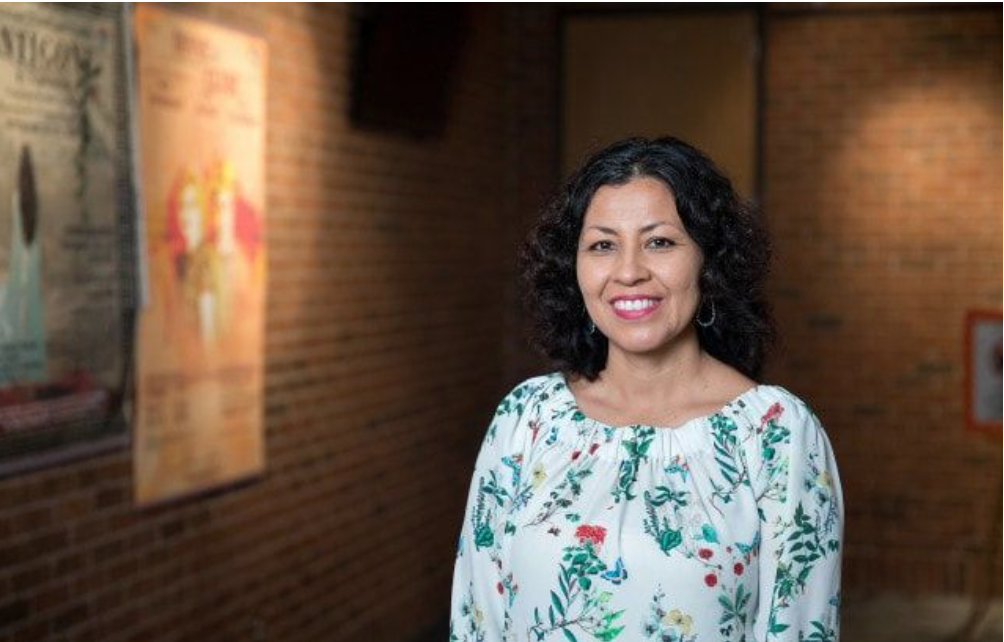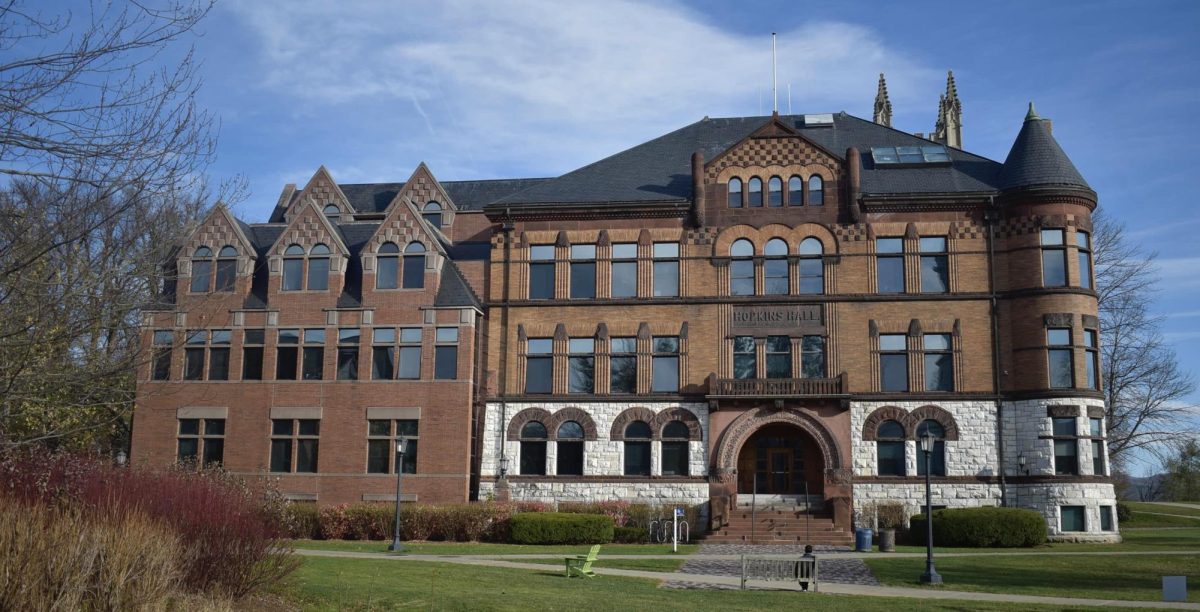Former Texas Poet Laureate Emmy Pérez presents on collection With the River on Our Face
May 3, 2023

Former Texas poet laureate Emmy Pérez discussed excerpts from her poetry collection With the River on Our Face in an April 28 talk hosted by the Class of 1960s Scholars and the English department and moderated by Matthew Gonzales, a Mellon Postdoctoral Fellow in Latinx literatures. Pérez published Solstice in 2003 followed by With the River on Our Face in 2016. The latter centers around her experiences living in the U.S.-Mexico borderlands for 23 years. The event was also sponsored by the Latino/a studies department, the comparative literature department, and the Margaret Bundy Scott Fund.
A graduate of Columbia University’s Master’s of Fine Arts (MFA) program, Pérez began a tenure-track position in creative writing and poetry at the University of Texas-Pan American in 2006, which would later become a part of the University of Texas Rio Grande Valley in 2013. She now serves as the university’s department chair, teaching in both the undergraduate and MFA writing programs.
During her talk, Pérez read excerpts from With the River on Our Face and discussed how her life experiences have influenced much of her work. Pérez began by reading aloud “And it’s you,” the first poem in the collection. She spoke about how the inspiration for the poem came to her as she was riding her bike. “I was recording myself as I was looking at the land — I was really close to the river [near] where I live, the Rio Grande Valley, and all these thoughts kept coming to me,” she said.
“Thirty hawks flying over el río bravo / Earth cupping / Water / Wind blowing / River in the opposite direction / Sun lit-up river / Sun white-slivers the river / Is this what it’s like / To feel you,” the poem reads.
After reading the poem, Pérez reflected on how the collection allowed her to explore new poetic styles, moving beyond shorter forms and writing longer poems that intentionally deviate from traditional poetry structure.
Pérez then read a poem titled “El Paso ~ El Valle.” The first portion of the poem explores El Paso, Texas, and the second explores El Valle, or the Rio Grande Valley, where her mother grew up and where Pérez moved in the early 2000s.
Pérez introduced the poem by speaking about the significance the Rio Grande holds for her personally. “[My mother’s family] grew up so close to it, and it sustains my family,” she said. “There’s a canal right next to where my mother grew up, and the kids that always go swimming in it. It was their swimming pool, and moms are like, ‘Oh don’t go in there,’ and then as soon as she looks away, they jump in — it’s very dangerous. But that is the water that helped my mom live.”
The river and the land that makes up the U.S.-Mexico borderlands where Pérez lives serves as a recurring motif in With the River on Our Face.
After reading “El Paso ~ El Valle,” Pérez mentioned that when she moved to El Paso in 2006, she was excited to see much of the Rio Grande from where she lived.
“When I moved out in 2006, we could see the river,” she said. “But then certainly less the same year or so when the Secure Fence Act came into being with the George W. Bush administration. I witnessed the building of the first walls, and this was all before all the heightened rhetoric that we heard in 2016.” The Secure Fence Act authorized the construction of 700 miles of fencing along the U.S.-Mexico border in an attempt to exercise operational control over U.S. international land and maritime borders.
U.S.-Mexico relations and immigrant rights serve as other recurring themes in With the River on Our Face, as Perez often draws from the stories of El Paso residents for inspiration. “Rio Grande ~ Bravo,” another poem from the collection from which Pérez read an excerpt, touches on these themes. Pérez begins the poem by quoting the Code of Federal Regulations. The rest of the poem goes on to discuss violence enacted by border patrol agents against Mexican immigrants, with Pérez weaving in the specific narratives of individuals who came to El Paso.
After reading a few more excerpts from her poetry collection, Pérez concluded her talk with a Q&A session. When asked by a student how she was able to trust her voice when writing about emotional or intense topics, such as violence against Mexican immigrants, Pérez stressed the importance of community. “People that you trust enough to share your work with, that are also being very vulnerable with their work with other writers, and are going to readings and events,” she said.







